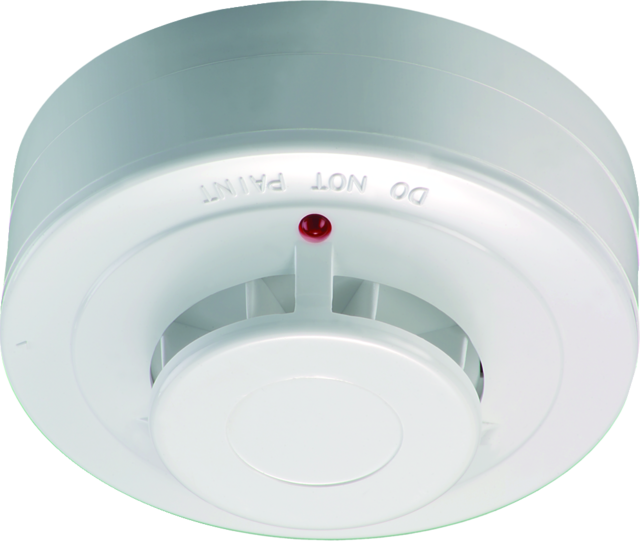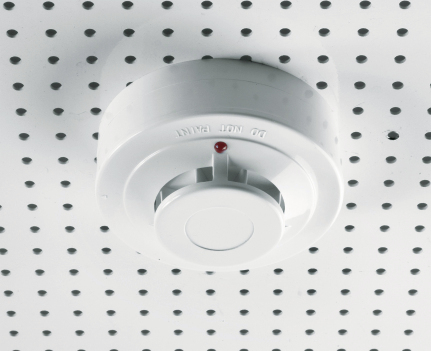RM1100
The 12 V thermo-differential detector detects incipient fires. It reacts to a maximum temperature and a sudden rise in temperature. These indicators are reliably detected and reported to the alarm center. The 12 V thermo-differential detector is mounted on the ceiling in the center of the room. The minimum distance to the side wall should be 30 cm. Since the heat detector does not detect smoke (as opposed to optical smoke detectors), it is used mainly in places with high dust and smoke pollution (kitchens, smoke rooms, garages). The detector triggers an alarm when the maximum temperature of 57° C is exceeded or when the temperature rises more than 5° C within 3 minutes. By changing a jumper, you can configure it as NO or as NC detector. It is therefore suitable for every wired alarm system. The 12 V raise of heat detector is supplied externally with 10 –15V operating voltage and is EN54 certified.
For safe and proper operation, this equipment must be installed and regularly maintained by a professional trained by us. Arrange regular maintenance appointments with your installer to ensure continuous smooth operation with the latest security updates and new functions.



